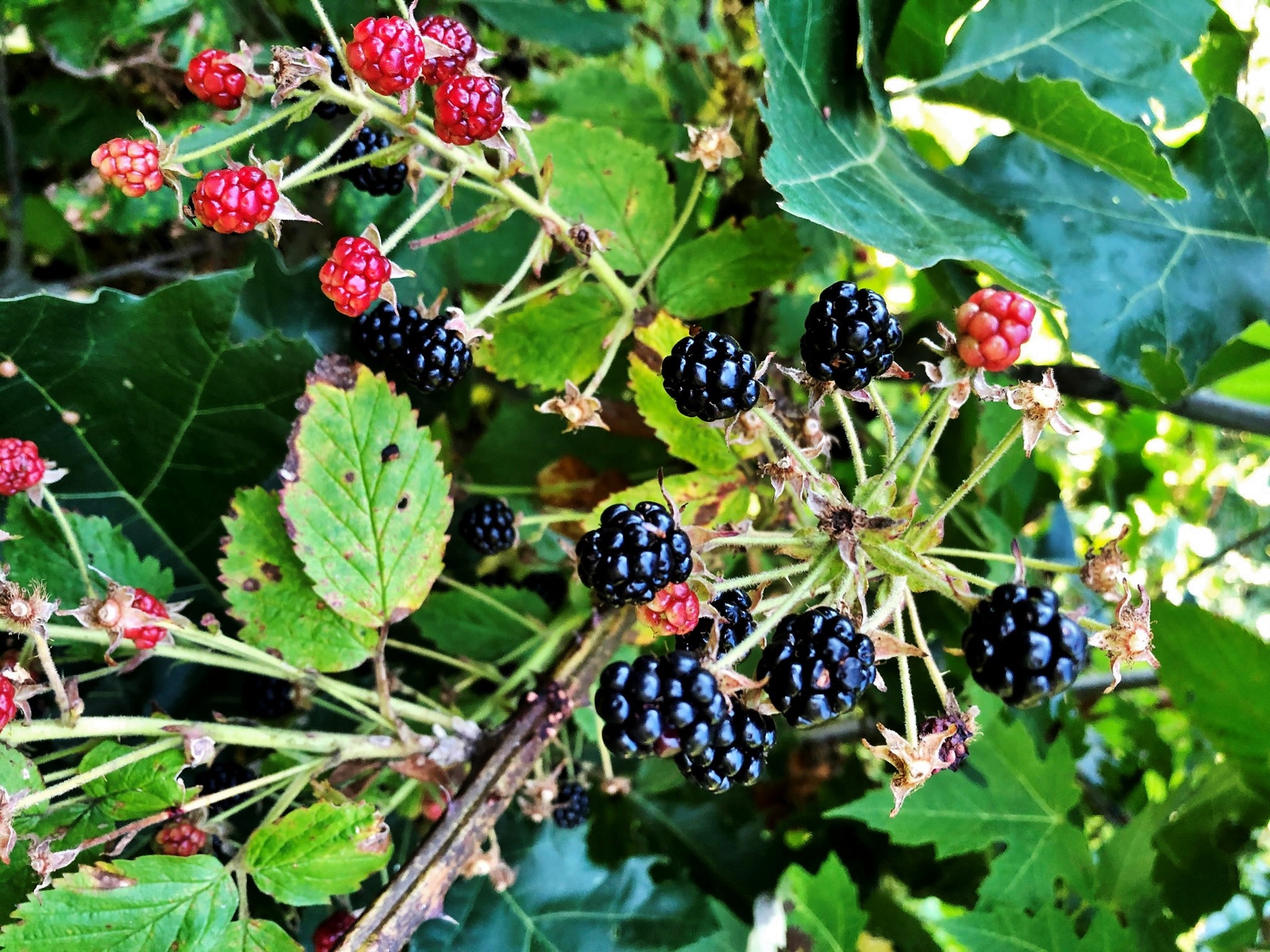Back Home by Chris Hardie
» Download this column as a Word document
» Download the photos that accompany this story
» Chris Hardie’s headshot
No summer is complete without a few trips into the woods to forage for wild blackberries; those prolific plants grow throughout our land. We try to harvest plenty of the berries for eating fresh, making jam, freezing and making wine.
This year, the berries have taken a hit from the recent dry spell. The lack of rain has dried many of the plants on the edges of the forest openings.
My wife, Sherry, and I spent several hours recently working our way through the various patches. Along with a few scratches — the blackberry badges of honor — we returned with about 7 quarts. Six of them went into the freezer and the seventh was used to make a blackberry pie.

Overall, I’d say the berry crop is less than average, with many of the thickets that have produced heavily in previous years no longer doing so. We needed to walk quite a ways to find decent berries because many are smaller this year.
Picking berries always reminds me of trips into the patch with my grandfather, great-aunt and other foragers who are no longer with us. It’s a quiet time to reflect and to be grateful for the blessings that end in the bucket. The reward is worth a few scratches.
Two years ago, I wrote about how picking blackberries can be compared to our journey through life. Those thoughts came to my mind as I passed the location where I sat with my father during his final deer-hunting season in November.
Life would be so much easier if others would take the scratches and trample the briars for us. If only we could arrive at the prize without needing to go through the pain, heartache and sorrow that come with the journey.
But it’s how we deal with the travails that makes us human. Scarred hearts grow new flesh. Broken souls slowly heal. The dirt of our imperfections is the seedbed of a new life. If we didn’t have briar patches in life the Garden of Eden would be awfully crowded.
I also learned something new. Blackberries are technically not berries; each is actually an aggregate fruit, composed of small drupelets. The plants can live for 25 years or longer; the canes fruit in the second year and die.
But I’ll stick with calling them berries. Somehow “aggregate fruit drupelet pie” just doesn’t sound quite as delicious.
Speaking of dry weather, as of this writing our farm is officially classified as abnormally dry by the National Weather Service. The designation covers much of Iowa, several sections of Minnesota and west-central Wisconsin.
It’s been nearly a month since we’ve had any measurable rainfall. Rain totals from July 1 have been as much as 3 inches less than normal across the region. In our sandy soils, the topsoil moisture is becoming scarce. Corn plants are curled and there has been little regrowth in our hay fields since the second cutting.
On a positive note, there is a bountiful crop of milkweed plants. I noticed hundreds of them in and around a patch of blackberries in a small field.
The berries may not be great this year, but the plethora of milkweed plants bodes well for the monarch butterflies. Monarchs need milkweed to lay their eggs and their caterpillars only eat milkweed plants.
Got milkweed?
Chris Hardie spent more than 30 years as a reporter, editor



